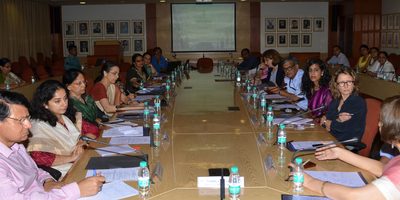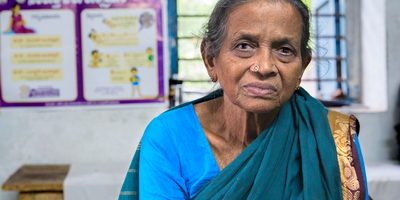
Round table on the future of women’s health: Using data and research to shape policy and program

The George Institute along with the Indian Council of Medical Research is planning a roundtable on “The Future of Women’s Health: Using Data and Research to shape women’s Health Policy and Program”.
Background
Our women's health program and work look at health conditions that are specific to women, are more common or serious in women, have distinct causes or manifestation in women, have different outcomes treatments in women, or have high morbidity or mortality in women.
The Global Burden of Disease (GBD) study has shown that the contribution of communicable, maternal, neonatal and reproductive diseases, to deaths amongst Indian women, had declined from 53% of 1990 to less than 30% in 2013 but:
Non-communicable diseases (NCD) have emerged as the largest killers of women in India - responsible for 60% of all deaths amongst women in 2013, up from 38% in 1990.
The only age group where NCDs are not the top cause is the under 15 category. Their contribution is about 40% in the 15-49 year age group, and >75% after the age of 50.
There is now a growing appreciation that there is different manifestation of disease and response to treatment in women. Also, there are gender differences in society, economics and at the work place besides of course in the family which contributes to distinct health needs and health system use.
Initiating discussion on Women's Health
As a starting point to initiate a dialogue on various aspects of women’s health, we organized a Women’s Health Round Table on March 15, 2016. The aim was to collect the views of various stakeholders that can help document gender disparities in awareness, access and quality of care and finding biological, social, cultural and health system related explanations for these disparities.
The dialogue was also aimed at determining how best to improve the health of women and adolescent girls and specifically to identify strategies to reshape the women's health agenda by a life course approach and include prevention and management of non-communicable diseases and injuries.
One of the recommendations of the roundtable was to devise strategies to ensure a gendered approach to the analysis of health data. Also, the roundtable emphasized on the need to reduce sex disparities in awareness, risk factors, access to care and quality of care for women.
Some of the challenges that have been identified in data and collection and analysis are consideration of cost; asking the right questions, establishing mechanisms to collect the data, collecting the right data, finding the right tools to analyse the data, taking the time to analyse and report the data and strengthening the evidence base for changing policy and practice on women’s health.
Download and read our policy report from the round table last year on 'Framing Women's Health Issues in 21st Century India'
What would the round table achieve?
The roundtable will address the question of why there are still so many gaps in gender-based research. The literature identifies several reasons for the same :
- An assumption that there are no differences beyond reproductive care.
- Many believe that “controlling for sex” is sufficient, and do not conduct “sex stratified analysis”
- Lack of understanding on the influence of “gender” on use of the health care system and provider responses to women as patients
- Even less appreciation of the intersectionality between gender, race, and poverty.
- Sample size sometimes becomes an issue for gender.
- Not all funders require it.
Gender based research is crucial to inform and strengthen the national health policy and health care delivery under it. The roundtable will bring together people from the government, researchers, academics, funding agencies and institutional bodies to reflect and deliberate on the following issues:
- How can we develop new standards for collecting and reporting data on sex and gender
- How can we make government data at local, State and national level sensitive to women’s concerns.
- Asking gender sensitive questions in research is more important than ever.
- Developing new models of care that are sensitive to women’s concerns.



